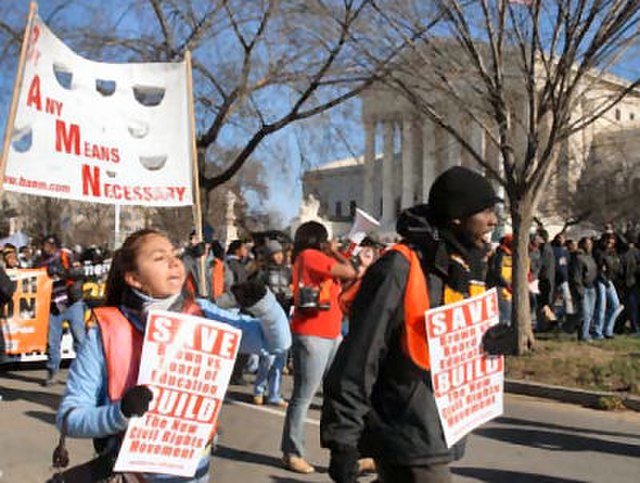Affirmative Action Legal Debate
November 4, 2022
Segregation and inequality have been and always will be an issue in the world. Affirmative action “(in the context of the allocation of resources or employment) is the practice or policy of favoring individuals belonging to groups regarded as disadvantaged or subject to discrimination.” This includes not only race but also age, gender, and disabilities. It was created in the 1960s to help fight against discrimination in marginalized groups, and make it easier for people other than white men to get jobs and higher education. Now, in 2022, people have an issue with this.
All over the country, certain colleges and universities have made race specifically, an important part of their application for a reason. For example, schools like Harvard and UNC say, “consideration of race as one factor in a holistic assessment of applicants is an indispensable tool for building a diverse campus.” If universities didn’t use race or gender as a factor in who they decide to accept, many ivy leagues would end up being mostly white and Asian and students wouldn’t have the opportunity to experience or learn about other cultures. The government has agreed with that statement and reinforced the right for colleges and universities to choose whether or not they use this in their holistic assessment since 1978.
Recently, a group of multiracial and multiethnic students and parents got together to fight this policy and they are now called “Students for Fair Admissions. They believe that, “Affirmative action violates the Equal Protection clause of the 14th Amendment and Title VI of the Civil Rights Act of 1964, which prohibits racial discrimination in any place that receives federal funding, like private universities.” Because of this group, this debate was taken all the way up to the Supreme Court.
There was a hearing for this debate on Monday, October 31, and it looks like the court is going to rule in favor of Students for Fair admissions. The lawyer fighting for affirmative action had some heated conversations with Justice Roberts and Justice Alito, resulting in a 6-3 vote for the other side. All cases regarding this subject, unfortunately, won’t be decided until around late June to early July 2023. Then we will see what they decide, and how it affects acceptance into higher education schools and the workplace.












